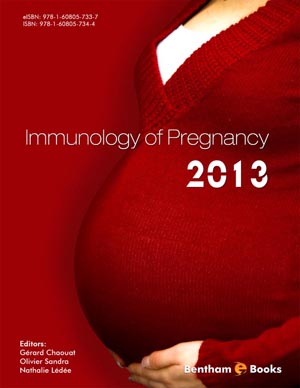Abstract
The successful embryo implantation and development in humans and rodents are dependent on a tightly choreographed dialogue between maternal and fetal milieu, involving cross talking cells, cytokines and hormones. This dialogue involves the endothelial cells, stromal cells and leukocytes in the endometrium from the maternal side, and trophoblast cells from the embryo side culminating into a complex signaling network. Unscheduled deregulation of these signals could result in pregnancy complications. An intriguing aspect of this dialogue is the participation of uterine Natural Killer cells (uNK), a lymphocyte population that accumulates in the uterine microenvironment specifically during pregnancy. uNK cells differ from their peripheral blood counterparts both in humans and rodents by virtue of high granule content, low cytotoxicity, and production of cytokines. Although there have been suggestions for the involvement of NK cells in programming of early pregnancy loss, a debate still continues to assess their role as a friend or a foe to pregnancy. In this chapter, we discuss the importance of phenotypic and functional aberrations and their association with abnormal pregnancy outcomes.
Keywords: Uterine Natural killer cells, angiogenesis, cytotoxicity.






















